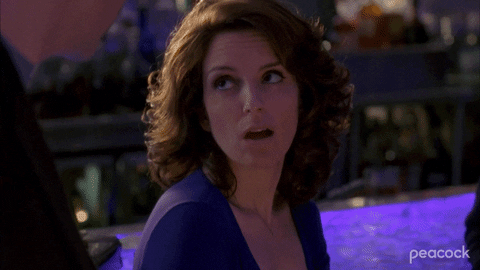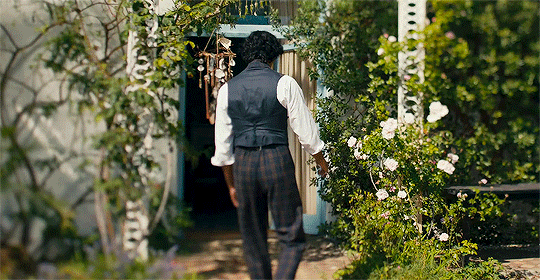#Ianthe Lavan
Explore tagged Tumblr posts
Text
Ysbets said. “I need you to teach the reading spell to me. In return, I shall encourage Ianthe’s pursuit of you.”
“Oh,” Beatrice said. “I see.” Ysbeta smiled and turned her attention to the shore.
“He is, as I am sure you know, an excellent match. You cannot hope to attract the attention of another who stands so high. You will ensure the prosperity and status of your family with his hand in marriage, and your sister will want for nothing when her own bargaining season comes. Will you teach me the spell?”
Any girl would fall over themselves for Ianthe Lavan. They would. Ysbeta’s pride in her brother was not arrogant, but earned, and it made sense that the daughter of an actuary would jump at the chance.
He was beyond even Father’s dreams for a son-in-law. Ianthe was more than he had hoped for. He was sophisticated, handsome, skilled in the gentlemanly arts, and no one had listened to Beatrice the way he had. If her portrait featured her with a rifle rather than a violon, he would have been intrigued.
An echo of shivering delight ghosted along her skin. She never knew a kiss could feel like that. She didn’t know that she had been asleep to such feelings, or how once awakened, they made her crave more. Ianthe was an ideal husband.
And if she chose him, she could never become a mage. She would never hope to gain the alliance of a spirit so powerful she couldn’t even imagine what she could do—what could she and a greater spirit of Fortune accomplish? Could she give all of that up, even for him?
Could she give him up, even for power?
3 notes
·
View notes
Quote
"I thought about it. Marriage is a sacrifice. But it's the sorceress who gives up everything." Beatrice trembled. "You will give up everything for me." "I love you. And if I have to choose between you, fully within your destiny, or a son to continue the traditions that depend on keeping you diminished, I choose you."
Beatrice Clayborn and Ianthe Lavan The Midnight Bargain by C.L. Polk
4 notes
·
View notes
Text
Everything is Terrible but at least we have Books
Everything sucks. Why not enjoy a good book?
And by that, I mean: The Midnight Bargain, by C.L. Polk!

Do you need a comfort read? Do you need a book that has magic and romance and reading it makes your brain feel like it’s being wrapped up in a nice, warm hug? Do you need a book that you will willingly sacrifice precious sleep in order to finish?
Then you need The Midnight Bargain.
Yes, I know, I’ve been giving out a lot of 5-stars lately, but that’s mostly because right now, I need those 5-star, forget-about-reality-type books right now. But The Midnight Bargain isn’t just a wonderful, comforting read for troubled times - The Midnight Bargain is just plain great, period.
Beatrice Clayborne lives in a man’s world. Men control pretty much everything: magic, government, women’s lives, everything. In a world similar to 18th century England, in the nation of Chasland, women have little to no rights. Women capable of wielding magic are really only valued for their, uh, ability to pass magical skills down to their offspring and not much else. Women aren’t allowed to study magic the way men are - women are supposed to get married and have children because that is the natural order of things and anyone who deviates from that natural order shall be ostracized by society forevermore.
Yes, I realize I’m not making this book sound very comforting at the moment, but trust me, it is. Perhaps it is spoilerish for me to say, but rest assured, this book has a happy ending in which the Patriarchy is given a solid kick in the balls.
Anyway!
Beatrice, our heroine, wants to study magic. She wants to tap into her magical ability to help her family’s situation, rather than using them to make a good marriage. Only, Beatrice’s family is kind of absolutely relying on her making a brilliant match during the so-called Bargaining Season, similar to, you know, The Season that rich people in 19th century novels talk about. The Bargaining Season is a time in which the families of wealthy society women with magical abilities broker marriages. If you go through more than two Bargaining Seasons without getting a husband, then, well, you’ve failed and no one will ever want you. Plus, these seasons are expensive AF. Beatrice’s family has gone into significant debt just to pay for her first Bargaining Season, and they’re counting on her making a brilliant match to quite literally save her family from poverty.
Oh, I should mention the additional catch. The one thing Beatrice wishes to avoid: being collared.
See, magical spirits want nothing more than a body to possess. They’d gladly possess an unborn child, so, once they’re born, they could exist in a physical form and wreak magical havoc. In order to protect women’s unborn children (please excuse me while I vomit everything I’ve ever eaten ever), upon marriage, women must be locked into a warding collar, cutting off their access to magic.
Or, if you’re a woman and you’re mouthy, have opinions, and can do magic, you might just get locked into that collar anyway.

The prospect of being locked into a warding collar is absolutely terrifying and Beatrice would do anything to avoid it. But she must somehow prove her mettle with magic and show her family that she can help raise their fortunes through magic, not marriage. Fortunately, Beatrice finds a grimoire that can help her become a fully-fledged Magus. Unfortunately, that grimoire is snatched out of her hands by Ysbeta Lavan, a woman of fabulous wealth who just so happens to have a few of the same goals as Beatrice.
Those goals, however, don’t (at that moment) include sharing the grimoire with Beatrice.
Desperate to get the grimoire back, Beatrice summons a minor luck spirit, Nadi, and strikes a bargain: she wants to share Beatrice’s body for an evening at a ball, and she wants Beatrice to dance, eat cake, and kiss a handsome man. Namely, Ysbeta’s gorgeous, liberal-minded brother, Ianthe Lavan.
As Beatrice becomes closer to the Lavan siblings, things get more and more complicated: can she practice magic and still be married? Can she have her own family without a warding collar? Can she save her family and still find her own happiness? Can she really have all that and her teamster sub??

The Midnight Bargain is one of those rare books that I literally could not stop reading. I have to be up stupidly early for work (did you know there’s a 4 in the AM?) so I’m pretty strict about my bedtime because I’m an adult and I need my job in order to make money so I can repay my student loans and buy books. Normally, there is no book, movie or TV show that will get me to stay up past my self-imposed bedtime because falling asleep at work would mean goodbye job and money I need to repay my student loans and buy books.
I stayed up for two and a half hours past my bedtime just to finish The Midnight Bargain. This is the second time a book by C. L. Polk has done this to me - the first was with her debut, Witchmark. With three books, she’s managed to knock the ball out of the park three times in a row. I don’t know how she does it, but damn I wish I could use whatever magic C. L. Polk is using on some of my moldering works in progress. Seriously, why can’t books just write themselves?
Anyway. I wish I had more eloquent things to say about how much I loved this book, but I don’t. 2020 has been a hell of a year, you guys. I try to, at the very least, review one book a month on this stupid blog, but, once again, I failed. September was quite literally hellish - I mean, my whole state caught fire and I had to flee my house in the middle of the night because the fires were right there, at the end of the road. I tore through The Midnight Bargain at the end of August with every intention of writing a review then, but I didn’t, because this year is the worst and it just keeps getting worse. But we still have books to escape into whenever things get bleak, so do yourself a favor, read The Midnight Bargain and escape into a magical world filled with romance, men who are kind, sweet baby angels, and the patriarchy gets the punch to the dick it so richly deserves.
RECOMMENDED FOR: Anyone in need of a nice, romantic pick-me-up book to escape into for a few hours to forget what a total dumpster fire the world is right now.
NOT RECOMMENDED FOR: Anyone who considers 2020 to be a fantastic year.
RELEASE DATE: October 13, 2020
RATING: 5/5
WHO WOULD PLAY IANTHE IN THE MOVIE:

Why, hello there, Dev Patel...
Because everything sucks, here’s this gif:

My heart...my heart...
TOTALLY UNBIASED FANGIRL RATING: 500,000,000,000 / 5
NADI RATING:

RUTH BADER GINSBURG:




Rest in power, RBG. The world misses you.
#the midnight bargain#cl polk#best books#best books 2020#the world is on fire#book review#fantasy#beatrice/ianthe#magic#comfort read#happy ending#smash the patriarchy#fantasy romance
4 notes
·
View notes
Photo


The Midnight Bargain, by C. L. Polk
Publish Date: October 13, 2020 Published by: Erewhon Length: 384 pages Genre: Fantasy/Romance My Rating: ★★★★★ (5 out of 5 stars)
**I received this as an egalley from the publisher through Edelweiss in return for an honest review.**
Synopsis:
Beatrice Clayborn is a sorceress who practices magic in secret, terrified of the day she will be locked into a marital collar that will cut off her powers to protect her unborn children. She dreams of becoming a full-fledged Magus and pursuing magic as her calling as men do, but her family has staked everything to equip her for Bargaining Season, when young men and women of means descend upon the city to negotiate the best marriages. The Clayborns are in severe debt, and only she can save them, by securing an advantageous match before their creditors come calling.
In a stroke of luck, Beatrice finds a grimoire that contains the key to becoming a Magus, but before she can purchase it, a rival sorceress swindles the book right out of her hands. Beatrice summons a spirit to help her get it back, but her new ally exacts a price: Beatrice’s first kiss . . . with her adversary’s brother, the handsome, compassionate, and fabulously wealthy Ianthe Lavan.
The more Beatrice is entangled with the Lavan siblings, the harder her decision becomes: If she casts the spell to become a Magus, she will devastate her family and lose the only man to ever see her for who she is; but if she marries—even for love—she will sacrifice her magic, her identity, and her dreams. But how can she choose just one, knowing she will forever regret the path not taken?
My Review:
All I can say is, how dare this book make me ship insta-love.
When I am shipping two characters that just met, I know I'm in for it. Normally I hate that sh*t. But somehow it worked in this book. I fell in love with Ianthe and Beatrice as a pair almost as immediately as they met. Part of me was anticipating it from the synopsis I suppose, but there was just something about their personalities that clicked together and had me smiling giddily.
This book pulled me in so quickly I almost fell. It is perfect for fans for period romance and fantasy, with wonderful world-building that has me itching for more stories about this world that Polk has created. It is not without its faults - an almost entirely backwards society in terms of female sorceress' rights that is reminiscent of when Western civilization believed women to be inferior and the possession of men and not themselves, and characters that took a really long time to understand how wrong it all was. But the feminist plight that Beatrice and Ysbeta face and fight for keeps the reader engaged and rooting for them, even as they feel the pain of Beatrice's choice between her magic and her love for Ianthe.
I honestly could not pull myself away from this book, especially towards the end. I enjoyed all the characters and seeing them overcome their flaws, and the plot was wonderfully engaging. I was especially happy that Beatrice and Ysbeta became friends, as opposed to the "rivals" that the synopsis indicated, because I felt from the moment they entered each other's circle that they would do better together than apart.
From the romance to the camaraderie, Beatrice's struggle to maintain her convictions against her desire to aide her family, the ploys of the bargaining season, and her companionship with the spirit Nadi, I adored absolutely everything about this book. It was just the book I needed when I didn't even know it.
(Slightly spoilerish: I do hope that C.L. Polk considers writing more about Ysbeta's future adventures, because I would absolutely love to read about those. Just a suggestion.)
1 note
·
View note
Text

Genre: Fiction, Historical Fantasy, Young Adult, Romance
Rating: 4 out of 5 stars
Trigger Warning: Sexism, Misogyny, Confinement, Violence, Pregnancy, Emotional abuse, Child death
Summary:
Beatrice Clayborn is a sorceress who practices magic in secret, terrified of the day she will be locked into a marital collar to cut off her powers. She dreams of becoming a full-fledged mage, but her family are in severe debt, and only her marriage can save them. Beatrice finds a grimoire with the key to becoming a mage, but a rival sorceress swindles the book right out of her hands. Beatrice summons a spirit to help, but her new ally exacts a price: Beatrice's first kiss . . . with the sorceress's brother: the handsome, compassionate, and fabulously wealthy Ianthe Lavan. From the World Fantasy Award-winning author of Witchmark comes a sweeping, romantic new fantasy set in a world reminiscent of Regency England, where women's magic is taken from them when they marry. A sorceress must balance her desire to become the first great female magician against her duty to her family.
They say don’t judge a book by its cover, but I definitely picked this book up at a bookstore in Canada because I loved the cover illustration. When I read the synopsis, a young girl fighting against societal expectations in an attempt to keep and use the magical ability she was born with, it sounded right up my alley. I’m happy to say that I enjoyed my time with this novel, the world is riched and realized for a stand-alone novel and the magic system is compelling.
I feel as if the biggest strength of this novel is the world-building and magic system. Beatrice Clayborn lives in and maneuvers around a fully realized world that make the reader believe that it exists outside the drama surrounding her family. There are continents that have their own cultures and laws, and while there are not many side characters, the world felt completely realized. The magic system was also interesting with individuals born with magical talent, though they need the assistance of a spirit to do any major spells. This adds a very unpredictable element to magic, a chess match between the magic-user and the spirit they call, that doesn’t always end well for any of the parties involved. I liked this take on magic and the conflict it created in terms of spirits inhabiting unborn children and leading to them being born into the world, which would lead to death and destruction. I just really enjoyed my time in this fantasy world. Working with spirits also leads to my favorite relationship in this novel, the one between Nadi and Beatrice. Their friendship begins as a bargain to help Beatrice’s fortunes during the start of the season and ends with them loving one another and attempting to protect one another from harm. I also really liked Beatrice’s relationship with her younger sister, Harriet. While I found Harriet annoying at times, it fits in well with the personality of a younger sister who is attempting to keep the family from exploding around her due to her rash and stubborn older sister. I teared up a little when she is apologizing to Beatrice at the end of the book. While she is hurt by Beatrice’s decisions, I like when there are consequences to actions in novels, even if they are minor. While there is not a lot of character growth in the novel, that is kind of the point. Beatrice and Ysbeta know who they are and what they want and won’t have it taken from them no matter what society or their families say. Now, I feel as if Beatrice’s mother needs to be discussed on her own. She is not a very well-rounded character, at times feeling like a plot device, but I also believe that is the point. It is Beatrice’s mother who doesn’t want her to enter marriage unaware of what it will cost her, even if she is marrying for love. It is her mother that makes her escape from a horrible fate to a horrible man possible for both Beatrice and escape in general possible for Ysbeta Lavan. While the loss of a woman’s magic is the main conflict in the book, this is because women cannot safely have children without a warding collar. Maybe it is just current events, but I really felt for Beatrice’s mother saying that she did not regret her daughters, that she loved them very much, but she didn’t understand what the collar and therefore motherhood would mean. She wanted her daughter to have a choice about whether she would bear children or pursue magical education and that raised her very high in my esteem. There is also possible Ace representation in the novel with the character of Ysbeta Lavan. While she doesn’t use that label, she makes it very clear that she has never felt an attraction to any man or woman and does not wish to marry or bear children. All Ysbeta wants is to learn about magic, gather knowledge, and share it with the world which is not something rich women do in this society. While Yebeta is stubborn and rash, her fear and desperation are understandable, especially if she is asexual. My biggest annoyance with this book is the almost instant love between Beatrice and Ianthe that really doesn’t waver. They share the midnight kiss to fulfill a bargain with Nadi because he happens to be standing there and then it is as if they are soulmates instantly. I know that this is a YA novel and therefore the troupe is more common, I would have liked them to have more time just being together and happy in each other’s company than arguing about how Beatrice using her magic and then being all heart-eyed at one another. That being said, their dance together when they say each other’s first names for the first time had a good deal of tension. This book has the tone of a YA novel. I don’t mean that as a negative, It IS a YA novel, but I know that a lot of older readers find it annoying when they age out of that age group. While I noticed it, it didn’t bother me too much. I also felt as if some themes could have been more subtly given to the reader instead of being slightly beaten over the head with them. These are minor complaints, but they did pull me out of the story at times. Overall, this is a fun read in a well-thought-out fantasy novel. When talking to someone I said it gave me Bridgerton with magic vibes, though probably following Eloise Bridgerton and not the other sisters. There are some really emotional scenes in this novel, but it is more plot focused on how Beatrice and Ysbeta will be able to keep their magic. A 3.5 read rounded up to a 4.
0 notes